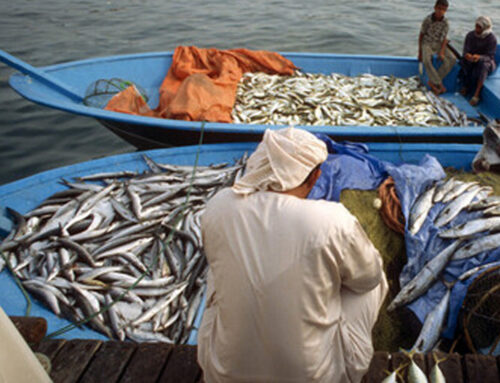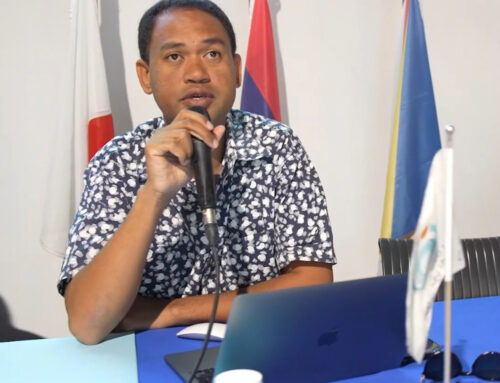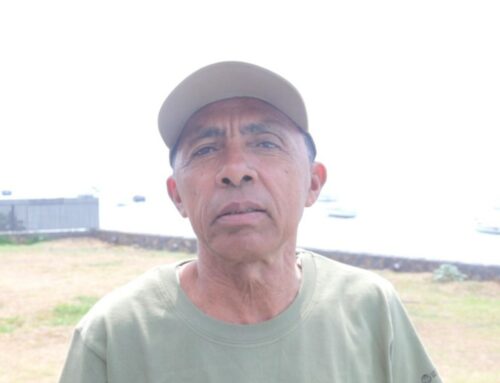During the 27th session of the Indian Ocean Tuna Commission, which took place in Mauritius from 8th to 12th of May 2023, the Federation of Artisanal Fishers of the Indian Ocean (FPAOI) and the South West Indian Ocean Tuna Forum (SWIOTUNA) presented a comprehensive set of Position Statements and Policy Recommendations advocating for transparency in fisheries management to the Indian Ocean Tuna Commission (IOTC). Let us dive in…
Information gap
 Artisanal fishers of coastal communities are finding themselves at a crossroad. Their livelihoods largely depend on the marine resources surrounding their villages, which contribute to the economic, food security and nutritional needs of each and everyone. However, the health of tuna stocks has kept declining.
Artisanal fishers of coastal communities are finding themselves at a crossroad. Their livelihoods largely depend on the marine resources surrounding their villages, which contribute to the economic, food security and nutritional needs of each and everyone. However, the health of tuna stocks has kept declining.
This downturn is caused by various challenges, namely: unequal access to the resources; overfishing; ecosystem damage; as well as climate change. Unfortunately, the fishers’ ability to participate in decisions regarding these precious resources is limited, due to the lack of transparency. Governments often fail to provide essential information about their fisheries sectors, such as laws, permits, stock assessments, catch data, and subsidies.
Incomplete or inaccessible data hamper efficient and sustainable fisheries management, oversight, accountability, and public dialogue. Marginalisation and undervaluation of certain groups, such as small-scale fishers and women in fisheries supply chains, limit the sector’s visibility in national debates.
Prioritising transparency
With the pressing need for sustainable fishing, the FPAOI and SWIOTUNA firmly believe that transparency is key to effective governance and equitable benefit sharing.
The FPAOI and SWIOTUNA urge all members of the IOTC to confront the critical depletion of tuna stocks in the Indian Ocean. As the call for transparency grew louder, the two organisations reminded the members and observers of the IOTC of their primary objective: to ensure the optimal use of tuna stocks through appropriate management and conservation. They urged coastal states and the scientific community to address the severe depletion of tuna stocks caused by excessive fishing and destructive techniques. To tackle these issues and unlock the socio-economic potential of fisheries, their recommendations are as follows:
- Demonstrating sustainable fisheries management: enabling fishing nations to demonstrate their capacity for sustainable management will build confidence among commercial partners, investors, suppliers, and international donors regarding seafood sourcing, trade, and investment decisions.
- Curbing rumours and mistrust: getting access to credible and reliable information helps combat rumours, misinformation, and mistrust. When struggling with challenges such as depleting fish stocks, transparency is vital to address fishers’ concerns about their livelihoods and future.
- Regional and international cooperation: nurturing trust among stakeholders is important to stimulate regional and international cooperation. Sharing high-quality and timely information among states supports good governance and sustainable management of migratory fish stocks.
A legal obligation
Transparency in fisheries management should not be a mere choice but a legal obligation and fundamental right, especially for those who depend on fishing. International standards, including the Voluntary Guidelines for Securing Sustainable Small-Scale Fisheries and the Policy Framework and Reform Strategy for Fisheries and Aquaculture in Africa, emphasise the significance of transparency.
When transparency bridges the information gap, it empowers communities and makes sustainable fisheries become a reality.







